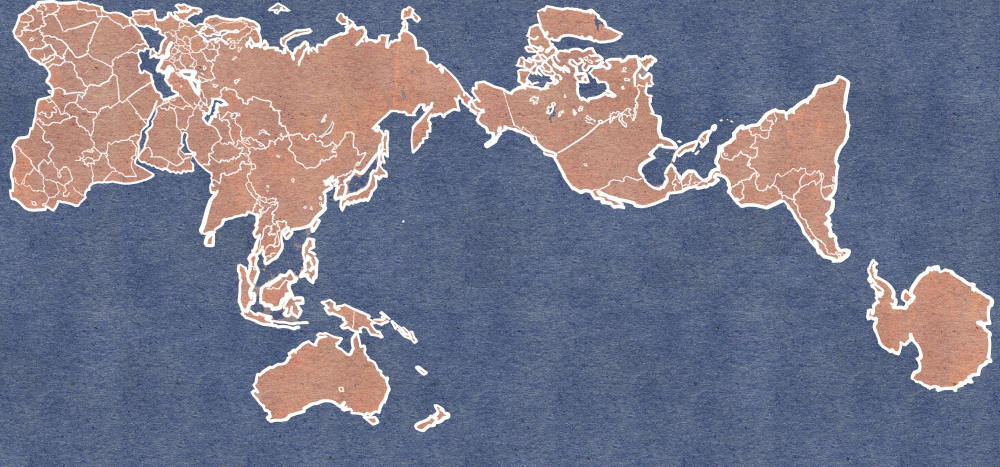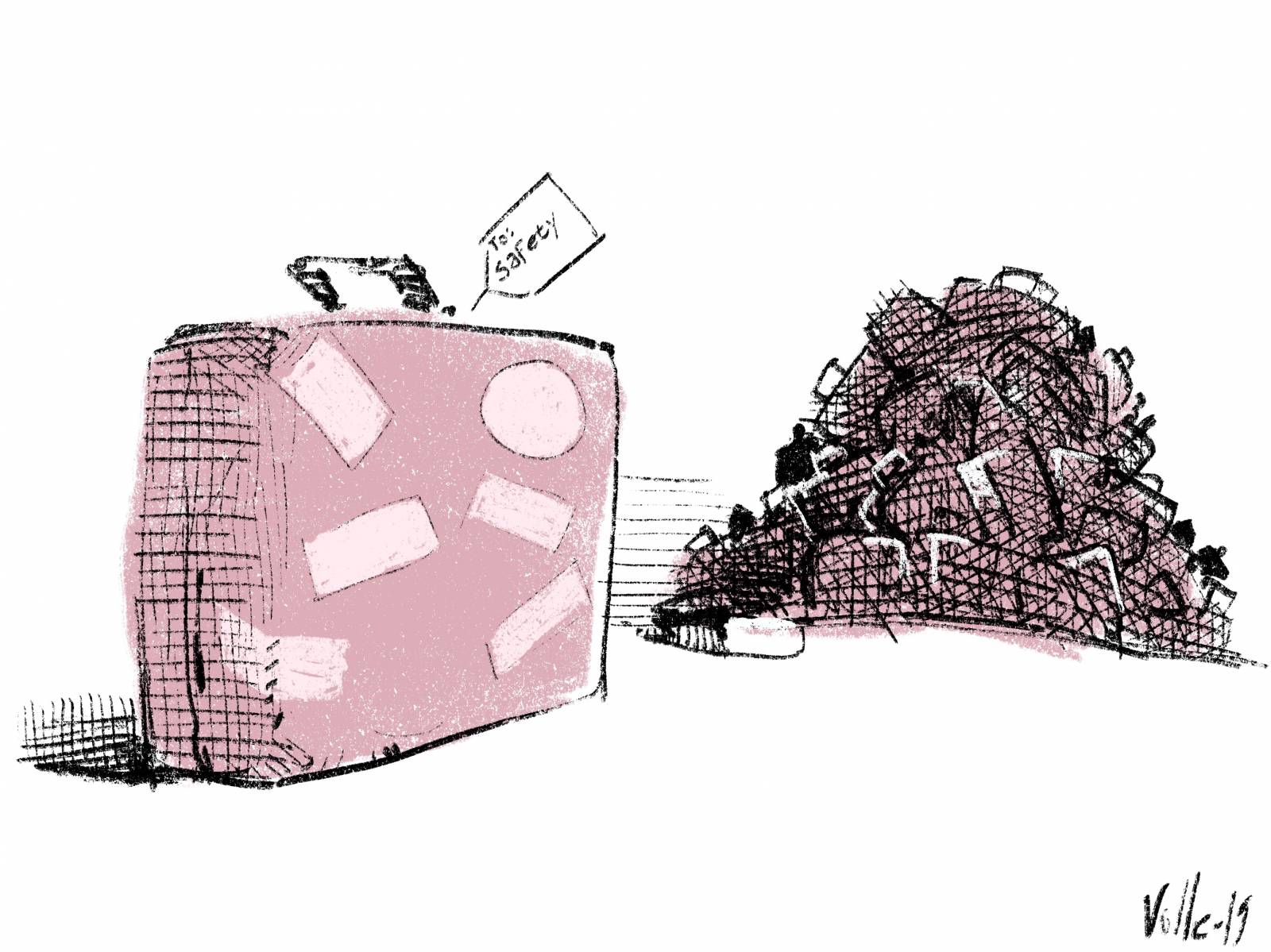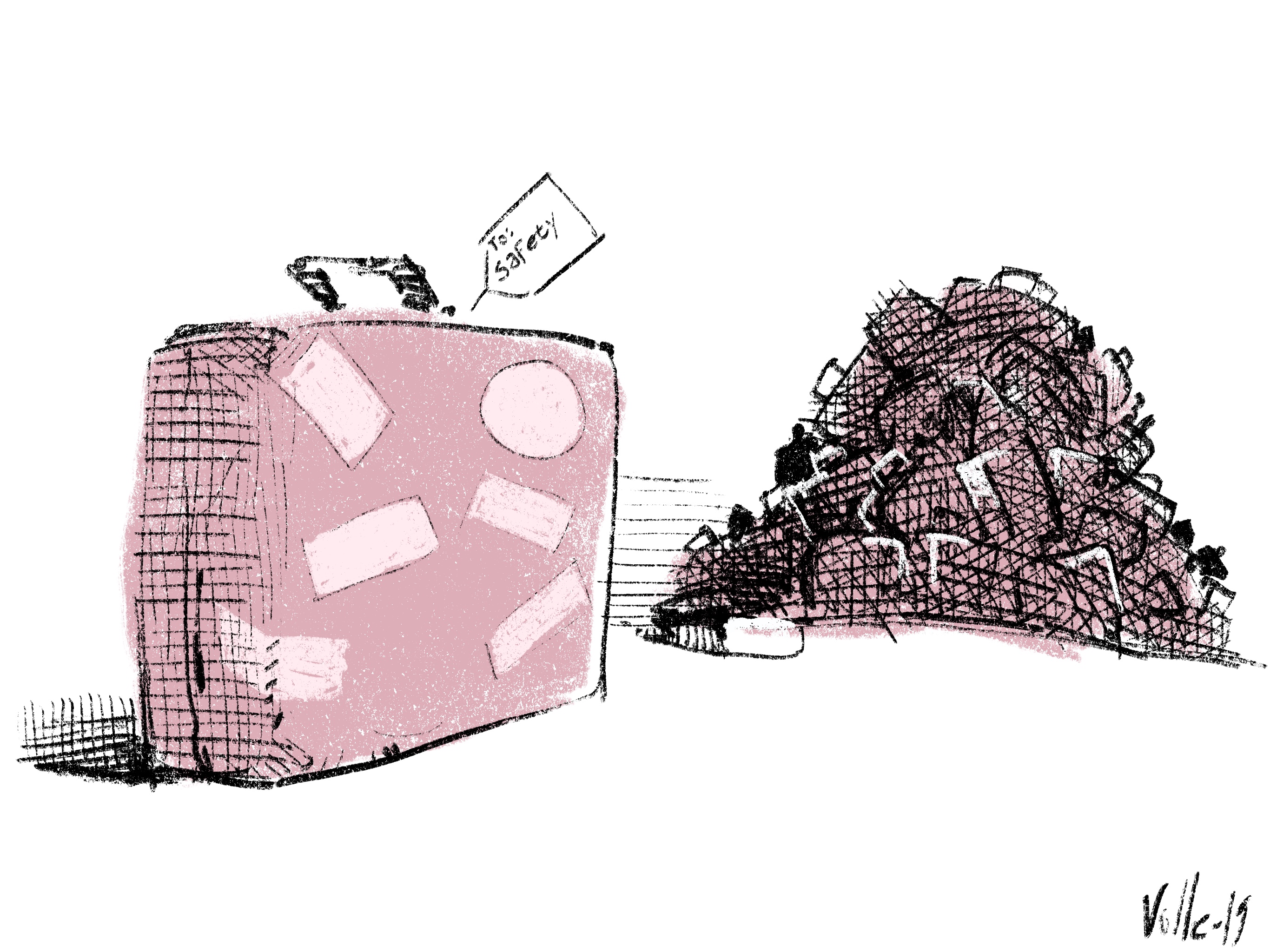Jyrki Käkönen approaches migration as systemic problem and reflects it as challenge for liberal values.
Rise of populism in the EU member states and president Trump’s policy in the USA sends us a message about migration, that it is currently seen as the biggest threat to the Western way of life. In the EU and US, however, migration is not considered a big problem as long as migrants remain either in their home countries or neighbouring states. In 2016 there were over 66 million migrants in the world. In twenty years the number of migrants increased by twenty. Two thirds of the migrants have remained in their home countries and 84 per cent stayed in the developing world.
In 2016, over 20 million people left or had to leave their homes, most of them trying to escape violence. In the future this is likely to change due to climate and environmental changes. It has been estimated that around 2025 three billion people will have difficulties in getting access to fresh water and around 2050 approximately 1.1 billion people will be without fresh water.
Climate change will cause different kind of environmental catastrophes and due to the lack of fresh water many places in the world are not anymore able to sustain life. This means that millions if not a billion more people have to migrate in case, they try to stay alive. Current migration is just the top of the iceberg.
Already in 1936 Finnish scholar Ragnar Numelin published his study The Wandering Spirit. A Study of Human Migration. The important aspect in his study is that human beings have always migrated. People and whole communities moved when the territory they exploited was not able to provide preconditions for reproduction of life.
Migration could bring communities in contact and cause even violent conflicts. But as long as there were unpopulated and fertile territories, conflicts could be avoided. In the current world unexploited territory is hard to find. And so-called nation-states have closed the borders and try to keep potential immigrants beyond their borders.
Migration becomes a political problem particularly in the context of nation-state which is a creation of modernization. It is said that migration is a threat to the cohesion of a nation-state. It is also taken as a threat to the welfare within the nation-state. Finally it is also a threat to the so-called national culture of a nation-state. Seldom it is asked how national the national culture is for instance in Europe where Christianity homogenized cultures already in the first Millennium.
It is just nationalism and national to which populism refers to in resisting migration. The idea is to preserve national culture, national values as well as the welfare achieved. These are something that the chosen people of an imaginative nation are entitled to. This also means that humanity is not understood as a unity but divided into nations with separate rights.
Nation-states have divided the globe into kind of exclusive territories. However, global climate as well in a way environment is undivided. Changes in environment and climate have an impact on each individual on the globe. In this respect it is good to keep in mind that modernization in a wide sense is one of the main factors causing environmental and climate changes.
Modernization has provided welfare and high living standards for 20 per cent of the world population. Therefore in a historical context, it may not be right to see migration as a problem or threat towards to the security of a sate. In this case an anti-migration policy would mean to protect the high living standard of the privileged 20 per cent and why to care about the rest. A paradox here is, that populism has recruited the have-nots of the welfare societies to defend the wasted interests of the privileged.
However, no one should forget that colonialism that denied the rights of its objects is one of the bases of modernization and the welfare of the privileged 20 per cent. Colonialism constructed the modern world economy. But it also transferred the resources of colonies into the resources of colonisers and the space of colonised people into the space of colonisers. And due to modernization millions of people have to leave that space and enter into the space of developed societies.
One of the paradoxes in preventing the climate change is a transition into the electric cars. Rechargeable batteries need rear earth metals which are to be found in developing world. The production of those minerals as well as of batteries pollute the environment and contribute the climate change. A technological solution does not finally solve the problem but transfers it from one place to another one, like in the early 20th century the transition from horses to cars.
In opposing the migration reference is often made to people who search for better income and living conditions. For leaving ones’ homes that is a natural reason as it has been already in traditional societies. In this connection I like to refer to Anders Chydenius, a Finn who was one of the pioneers of liberalism in the late 18th century.
Chydenius made free movement of people one of the principles of liberalism. According to him people had the right to leave their homes and settle down where they best could secure for themselves as well as for their families the best conditions for subsistence. In this respect anti-migration policy stands against the values of liberalism.
When Western liberalism turns against its own values it is possible to agree with Bruno Latour, who has argued that currently the so-called Western civilization is on the move towards barbarism. This indicates that in anti-migration policy the issue is not at all about the defence of the Western civilization.
Above I have indicated that roots for current migration are to be found in history and in the existing international order and world economy; i.e. the reasons are systemic. The same system what has provided welfare for the 20 per cent of privileged force millions of people to live their homes. This means that there is no satisfactory solution to international migration as long as current economic, political and social structures remain untouched.
The system that creates problems hardly can solve them but is able to transfer them and postpone the needed solutions. Human kind has to have courage to abandon the so-called market oriented capitalist economy as well as materialistic and individual centric world view. In this respect the West is not anymore in a position to universalize its version of modernization as a model for the future welfare of the humankind.
Text: Jyrki Käkönen
Illustration: Karstein Volle



